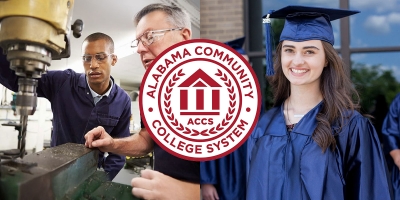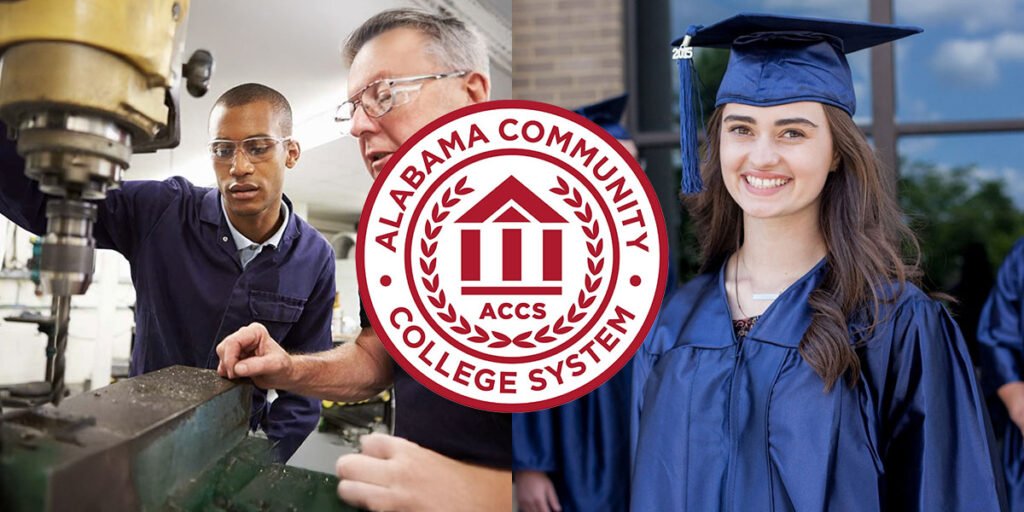
Students in Alabama, whether recent high school graduates or adults looking to switch careers, are turning to local community colleges for their next steps. The Alabama Community College System (ACCS) provides a diverse array of educational and training options that cater to various needs.
With 24 colleges and more than 130 locations across the state, ACCS presents high-quality, affordable programs suitable for multiple types of learners. Whether you aim to enter the job market, enhance your skills, or finish a degree, there’s a pathway waiting for you.
One of the initial choices students often face involves deciding between credit and non-credit courses. Both offer valuable opportunities, yet they are structured differently based on your objectives, timeframe, and intended career paths.
Choose What Fits You
It’s important to understand how credit and non-credit courses differ and what each aims to achieve before making a decision.
Dr. Natalie Thornton, the executive director of career and technical education, clarifies this distinction. “The principal difference between credit and non-credit courses is the time commitment required,” Thornton states. “Non-credit training is generally shorter and more basic, making it an excellent choice for quick skill development.”
In contrast, credit courses adhere to a semester system and require a minimum number of instructional hours, even if they are offered in a condensed format.
In essence, credit courses are part of a formal academic journey that leads to a certificate or degree, whereas non-credit courses provide rapid and flexible training aimed at specific careers, potentially resulting in recognized industry certifications without the commitment of long-term classes.
Non-Credit: Quick, Focused, Career-Ready
Non-credit programs expedite learning opportunities for those looking to get into the workforce quickly.
While these courses do not contribute towards university degrees, they provide hands-on training in high-demand fields like manufacturing, healthcare, hospitality, construction, fiber optics, and commercial operations. Many lead to industry-recognized certifications that enhance job prospects.
Julie Frizzell, the operations chief at the ACCS Innovation Center, outlines the main aims of these programs. “Non-credit programs are typically tailored for those pursuing careers that don’t require a two- or four-year degree, especially in skilled trades that are in high demand,” she adds.
“The goal is to deliver accessible and streamlined training, equipping individuals with the skills they need for better-paying jobs in today’s market, whether moving into a new field or advancing quickly. These programs are rapid, adaptable, standardized statewide, and designed to offer clearer pathways for participants.”
A noteworthy example is the Skills for Success program, which provides free, short-term training aligned with employer needs.
Houston Blackwood, the workforce director at the ACCS Innovation Center, notes that the three most sought-after skills currently are CDL Class A, CDL Class B, and fiber optic technician and installer training. Notably, the fiber optic program has seen over 1,300 students achieve industry credentials within three years.
Frizzell stresses the significance of non-credit programs. “Non-credit training is absolutely vital and often leads to higher salaries than some careers requiring a two- or four-year degree,” she points out.
“Programs like those for motor grader operators, water operators, and fiber optic engineers prepare individuals for essential roles in maintaining community operations, offering solid wages, stability, and a sense of purpose.”
For many Alabamians, non-credit pathways pave the way to further educational opportunities in their career routes, presenting clear avenues to employment, financial security, and fulfilling jobs.
Credit: Structured, Stackable, Degree-Oriented
Credit courses offered by the ACCS provide a solid and adaptable route to long-term success.
With 24 colleges and over 130 locations throughout the state, ACCS helps students embark on their educational journeys more intelligently. Whether you’re a high school graduate, working full-time, or returning to study after some time, the system is designed to accommodate real-life demands and offers online classes tailored to your schedule, whether it’s mornings, evenings, or weekends.
The credit program is a part of the traditional academic path leading to certificates and associate degrees, with seamless transfer options to four-year universities. Students can start or complete the first half of their bachelor’s degree at a lower cost, keeping more money in their pockets.
Additionally, many choose targeted career training programs. With 288 different program options across sectors like healthcare, business, manufacturing, education, and technology, Alabama community colleges cater to everyone. From university preparation to hands-on training, ACCS crosses the entire educational landscape, providing a smart starting point for all learners.
These programs are modular and designed with success in mind. You can begin with short-term certificates and progressively work towards more advanced credentials at your own pace.
Furthermore, ACCS delivers high-quality education from experienced instructors at much less than half the cost of most four-year institutions, facilitating faster graduation with less debt, allowing students to advance toward their next goals.
Whether aiming to become a registered nurse, cybersecurity specialist, teacher, or entrepreneur, Alabama’s Community College credit programs offer the structure, support, and quality necessary to achieve those ambitions. With an emphasis on class sizes, flexible options, and comprehensive academic preparation, ACCS provides real-world education tailored to your needs.
Whether you’re looking to launch your career quickly or complete a university degree, Alabama community colleges have designed pathways aligned with your aspirations.
Non-credit programs offer swift and practical training for in-demand occupations, while credit courses provide the academic groundwork and flexibility needed for a lasting career. Both options are accessible, cost-effective, and steady in delivering real results.
At ACCS, there’s something for every learner, every schedule, and every future.
For additional information, visit www.alabama.edu and explore free short-term training opportunities at Skills for success.







